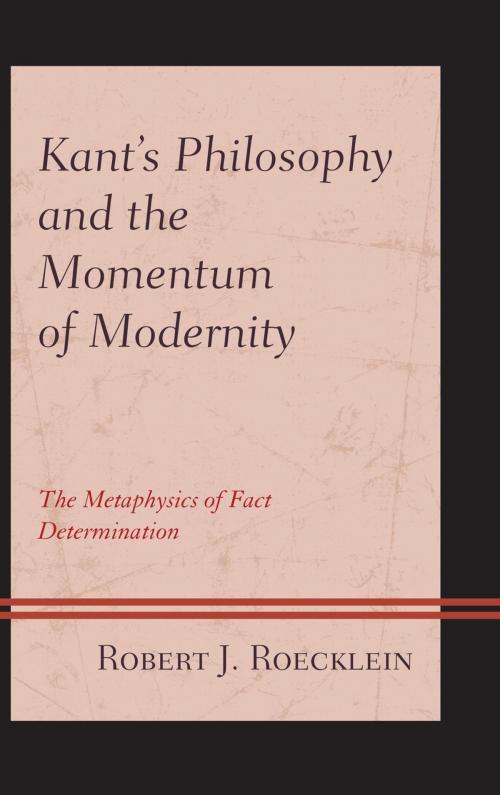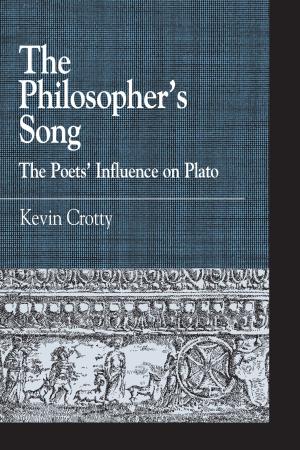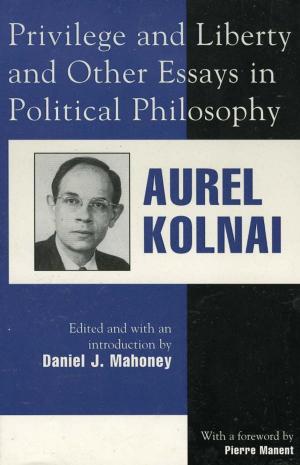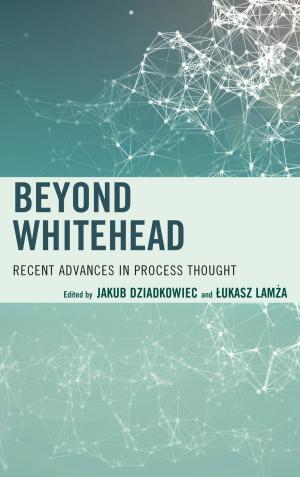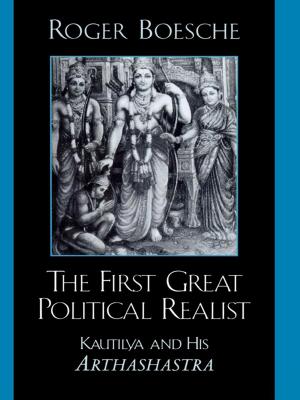Kant’s Philosophy and the Momentum of Modernity
The Metaphysics of Fact Determination
Nonfiction, Religion & Spirituality, Philosophy, Epistemology, Modern, Metaphysics| Author: | Robert J. Roecklein | ISBN: | 9781498571401 |
| Publisher: | Lexington Books | Publication: | February 8, 2019 |
| Imprint: | Lexington Books | Language: | English |
| Author: | Robert J. Roecklein |
| ISBN: | 9781498571401 |
| Publisher: | Lexington Books |
| Publication: | February 8, 2019 |
| Imprint: | Lexington Books |
| Language: | English |
This book is both a careful study of Immanuel Kant’s work and the context of that work in the movement known as early modern philosophy. The chief interest of the author concerns the philosophy of perception that is manifest in Kant’s doctrines of the transcendental aesthetic and the concept of phenomena. Philosophy bears a crucial relationship to the public in terms of the evidence that it identifies as original and binding. In the early modern period, philosophy repudiated its dependence on ordinary perception, and on language as ordinarily used, in the setting forth of its own authority. This historiographical fact is presently of immense interest, as public discourse finds itself rudderless and without agreed upon common facts for deliberation to settle on. It was not the view of the ancient Greeks that philosophy could so emancipate itself from the perception of common facts as the original evidence for higher investigations. The Early Modern era, beginning with Bacon but now more furiously in the work of Kant, has anchored a general indictment of ordinary perception in a remnant of natural philosophy. Human beings, in Kant’s philosophy, are not capable of knowing what objects, external objects, are in themselves. We may only know what are called "appearances," and Kant refers to these appearances as phenomena. Yet this claim is complicated by the a priori knowledge which Kant claims to possess as regards these phenomena: that they must all be eternal substances. The book freely moves back and forth between Greek antiquity and the Early Modern period to illustrate the full nature of the rupture on this ground of the metaphysics of fact determination. For Aristotle, the founder of the theory of substance, substances are just the perishable bodies commonly perceived. Kant’s phenomena, which claims to embody what appears to the generality of the human race, cannot be that, for the human race does not perceive eternal objects.
This book is both a careful study of Immanuel Kant’s work and the context of that work in the movement known as early modern philosophy. The chief interest of the author concerns the philosophy of perception that is manifest in Kant’s doctrines of the transcendental aesthetic and the concept of phenomena. Philosophy bears a crucial relationship to the public in terms of the evidence that it identifies as original and binding. In the early modern period, philosophy repudiated its dependence on ordinary perception, and on language as ordinarily used, in the setting forth of its own authority. This historiographical fact is presently of immense interest, as public discourse finds itself rudderless and without agreed upon common facts for deliberation to settle on. It was not the view of the ancient Greeks that philosophy could so emancipate itself from the perception of common facts as the original evidence for higher investigations. The Early Modern era, beginning with Bacon but now more furiously in the work of Kant, has anchored a general indictment of ordinary perception in a remnant of natural philosophy. Human beings, in Kant’s philosophy, are not capable of knowing what objects, external objects, are in themselves. We may only know what are called "appearances," and Kant refers to these appearances as phenomena. Yet this claim is complicated by the a priori knowledge which Kant claims to possess as regards these phenomena: that they must all be eternal substances. The book freely moves back and forth between Greek antiquity and the Early Modern period to illustrate the full nature of the rupture on this ground of the metaphysics of fact determination. For Aristotle, the founder of the theory of substance, substances are just the perishable bodies commonly perceived. Kant’s phenomena, which claims to embody what appears to the generality of the human race, cannot be that, for the human race does not perceive eternal objects.
